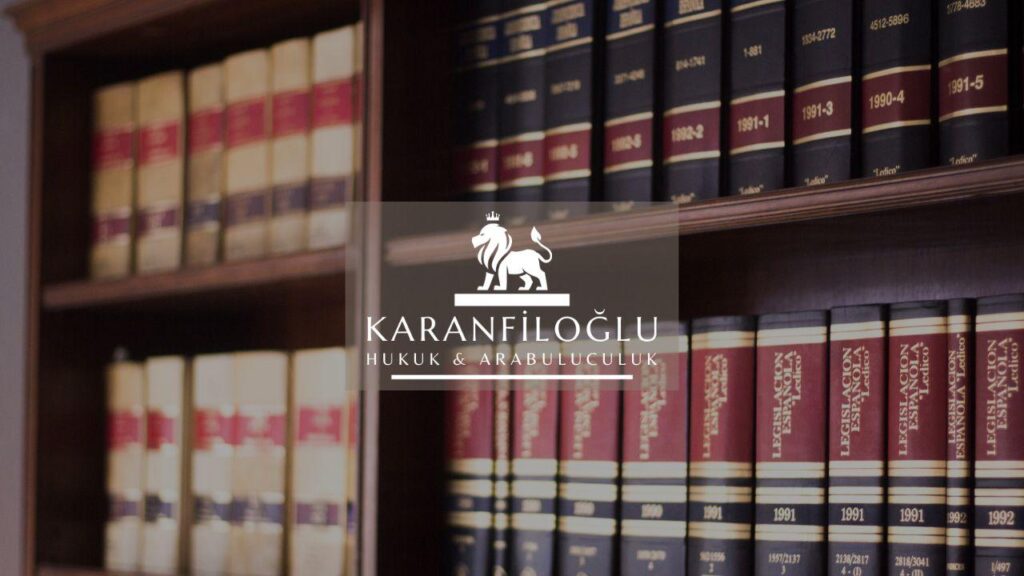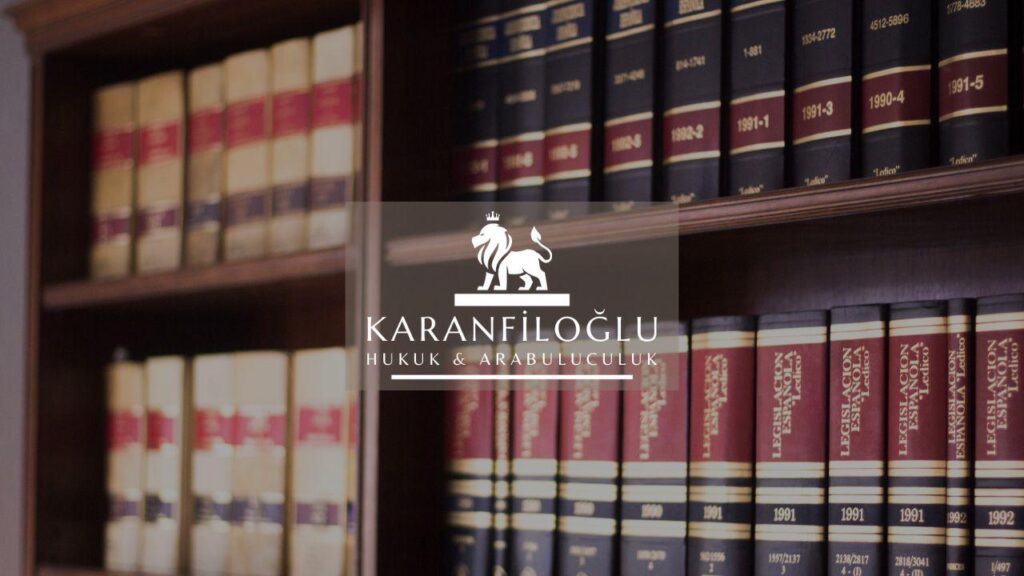Landlord-tenant disputes in Turkey often arise due to conflicts over rent payments, property maintenance, and lease terms. The resolution of such disputes is primarily governed by the Turkish Code of Obligations (Law No. 6098), particularly Articles 299 to 378, which outline the rights and obligations of both parties. In addition, the Law on the Protection of Consumer Rights (Law No. 6502) may also be applicable in certain residential lease agreements. At Karanfiloglu Law Office, our experienced attorneys are well-versed in these regulations and can assist clients through mediation processes, arbitration, or litigation if necessary. Understanding these legal frameworks is crucial for both landlords and tenants to protect their interests and seek fair resolution. By addressing the legal intricacies and providing clear guidance, we aim to facilitate amicable settlements and minimize the need for prolonged legal battles.
Legal Grounds and Obligations for Landlords and Tenants in Turkey
Legal grounds and obligations for landlords and tenants in Turkey are extensively outlined in the Turkish Code of Obligations (Law No. 6098). For instance, Article 299 specifies that the landlord is obliged to deliver the rented property in a suitable condition for the agreed use and to maintain it throughout the tenancy. Concurrently, Article 301 obliges tenants to use the rented property with due care and return it in the condition it was received, accounting for ordinary wear and tear. Tenants are also required to pay rent and associated costs punctually as stipulated by Article 313. Meanwhile, the Law on the Protection of Consumer Rights (Law No. 6502) extends particular protections to tenants in residential leases, such as ensuring transparency in contractual terms and safeguarding against unfair practices. These statutory provisions establish a framework aimed at promoting a balanced and fair relationship between landlords and tenants.
Landlord and tenant disputes often escalate due to misunderstandings about specific rights and obligations, which can be mitigated through clear contractual terms and adherence to applicable laws. Article 315 of the Turkish Code of Obligations provides landlords with the right to terminate the lease if the tenant fails to pay the rent within a 30-day grace period following a formal payment request. Similarly, Article 319 allows tenants to request a rent reduction if the property’s use is significantly limited due to unforeseen circumstances, provided the issue is not caused by the tenant. On the other hand, temporary issues affecting the property’s usage, such as necessary repairs, must generally be tolerated by the tenant under Article 317, unless these cause substantial inconvenience. Understanding these provisions ensures both parties can protect their rights and seek appropriate remedies, paving the way for amicable dispute resolutions with the guidance of legal professionals like Karanfiloglu Law Office.
In addition to the established legal provisions, both landlords and tenants in Turkey should be aware of the mechanisms available for dispute resolution. Initially, the Law on Mediation in Civil Disputes (Law No. 6325) encourages parties to seek mediation before resorting to litigation. Mediation offers a cost-effective and confidential means of resolving conflicts, with mediators facilitating negotiations to reach a mutually beneficial settlement. If mediation fails, parties can then consider arbitration, in accordance with the Turkish International Arbitration Law (Law No. 4686), or pursue litigation through the courts. During litigation, landlords can seek eviction orders through enforcement proceedings, whereas tenants may claim compensation or enforce their rights through court judgments. Having knowledgeable legal representation, such as the expert attorneys at Karanfiloglu Law Office, is crucial in navigating these processes to ensure that both landlords and tenants can achieve their desired outcomes efficiently and fairly.
Step-by-Step Guide to Mediation and Arbitration
Mediation and arbitration are effective alternatives to litigation for resolving landlord-tenant disputes in Turkey. Mediation, governed by the Law on Mediation in Civil Disputes (Law No. 6325), offers a voluntary and confidential process where an impartial mediator helps both parties reach a mutually satisfactory agreement. According to Article 18 of Law No. 6325, agreements reached through mediation have the same enforceability as court judgments when approved by the court. Arbitration, as outlined in the Turkish International Arbitration Law (Law No. 4686), provides a binding resolution where an arbitrator’s decision is final and enforceable. Engaging in these alternative dispute resolution methods can save time and costs, and at Karanfiloglu Law Office, our legal experts can guide you through each step, ensuring compliance with all relevant legal procedures.
The mediation process in Turkey begins when both parties voluntarily agree to use mediation as a means of settling their dispute. This agreement can be made before or after the dispute arises, and is formalized through a written contract as specified by Article 3 of Law No. 6325. Once the mediation process is initiated, the parties select a mediator from the official list maintained by the Ministry of Justice, who assists them in negotiating a resolution. The mediation proceedings are governed by confidentiality, as per Article 4 of the same law, ensuring that the discussions and any subsequent agreement remain private. Should mediation result in an agreement, the document detailing the settlement is submitted to court for approval, granting it the same enforceability as a court judgment. At Karanfiloglu Law Office, our skilled attorneys ensure clients fully understand each step of the mediation process and represent their interests effectively.
If mediation does not result in a satisfactory resolution, parties may consider arbitration as the next step. Arbitration in Turkey is initiated by the inclusion of an arbitration clause in the lease agreement or a separate arbitration agreement, as mandated by Article 4 of Law No. 4686. The disputing parties then select an arbitrator or arbitration institution to handle the case. The arbitration process is structured but flexible, allowing parties to tailor certain procedural aspects to fit their needs. An arbitrator’s decision, known as an arbitral award, is final and binding, with limited grounds for appeal under specific conditions outlined in Article 15 of Law No. 4686. At Karanfiloglu Law Office, we ensure that our clients are well-prepared for arbitration by providing comprehensive legal support, from drafting arbitration agreements to advocating on their behalf during proceedings. Our goal is to achieve a fair and enforceable resolution in the most efficient manner possible.
Essential Documentation for Effective Dispute Resolution
Effective dispute resolution in landlord-tenant conflicts in Turkey hinges on presenting essential documentation that substantiates each party’s claims. First and foremost, the lease agreement, governed by Articles 299 to 378 of the Turkish Code of Obligations, serves as the foundational document outlining the rights and responsibilities of both parties. It is imperative to ensure that this agreement is comprehensive and includes crucial details such as rent amount, payment schedule, maintenance obligations, and duration of the lease. Additionally, keeping records of all rent payments, communication between the landlord and tenant (such as emails and letters), maintenance requests and receipts, and any notices given or received is equally important. These documents can provide critical evidence and aid in establishing the facts of the dispute, thereby facilitating a more efficient resolution process. At Karanfiloglu Law Office, our attorneys can help clients compile and organize this documentation, ensuring that no key details are overlooked.
In addition to these primary documents, having a detailed inventory list signed by both parties at the beginning of the lease term can significantly aid in resolving disputes related to property condition and maintenance responsibilities. This inventory, in accordance with the provisions of Articles 334 and 340 of the Turkish Code of Obligations, should include photographs or videos documenting the state of the property and its fixtures. Furthermore, any agreements or addendums made after the original lease agreement should be documented in writing and signed by both parties. For disputes involving property damage, obtaining independent expert appraisal reports can be invaluable. Engaging a professional for such evaluations ensures an impartial assessment, which can be persuasive in mediation or court proceedings. By meticulously maintaining and organizing these documents, both landlords and tenants can strengthen their positions and improve their chances of achieving a favorable outcome.
Finally, when dealing with potential eviction disputes, it is crucial to comply with the formal procedures outlined in the Enforcement and Bankruptcy Law (Law No. 2004), specifically under Articles 269 and 276. Landlords must serve a formal eviction notice and, if necessary, obtain a court order to legally evict a tenant. Tenants, on the other hand, should be aware of their right to contest such actions if they believe they are unjustified, ideally through early negotiation and legal counsel. Both parties should keep copies of all legal notices, court documents, and any correspondence related to the eviction process. At Karanfiloglu Law Office, our expertise in navigating these procedures ensures that clients can pursue or defend against eviction actions in compliance with Turkish law, thereby safeguarding their rights and minimizing potential legal repercussions.
Disclaimer: This article is for general informational purposes only and you are strongly advised to consult a legal professional to evaluate your personal situation. No liability is accepted that may arise from the use of the information in this article.







